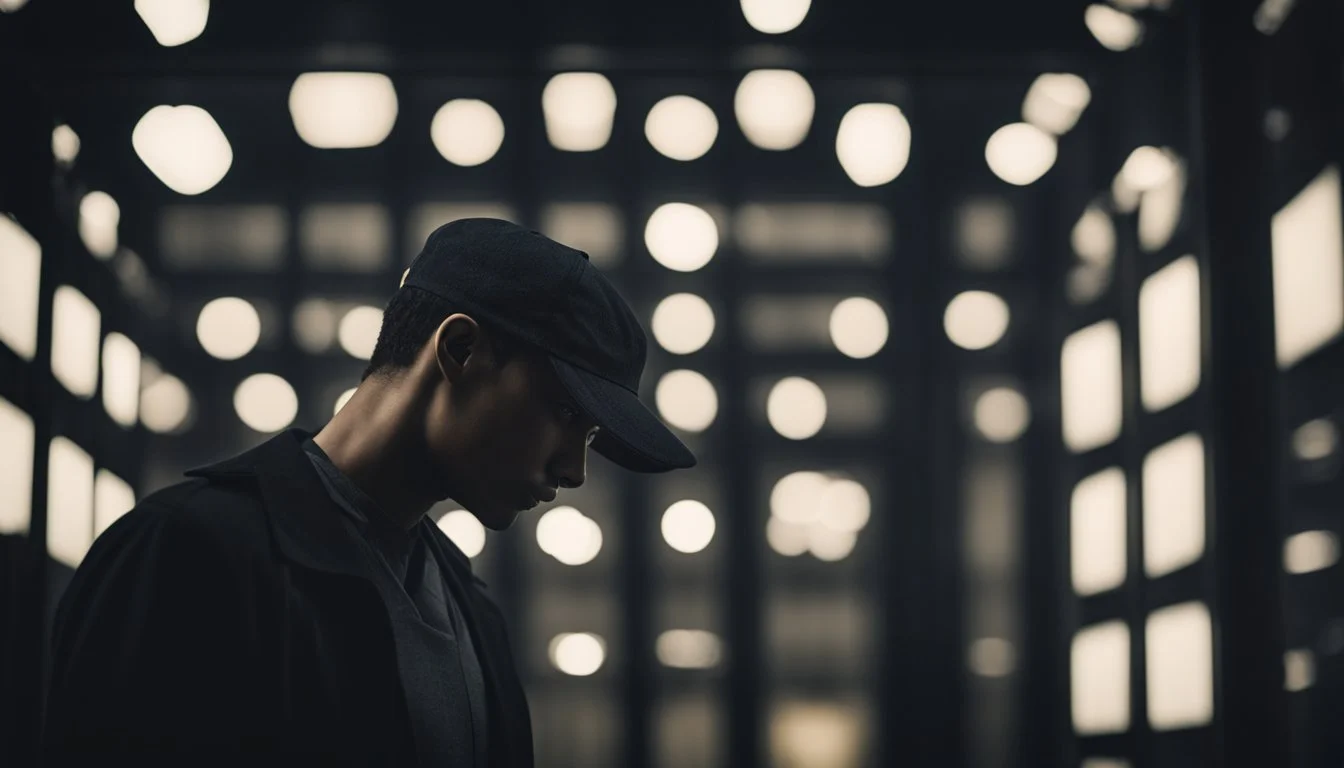6 Shocking Documentaries Unraveling the Gypsy Rose Blanchard Case
Exposing the Truth Behind a Complex Crime
The Gypsy Rose Blanchard case captivated the nation with its shocking twists and tragic revelations. This true crime story exposed a complex web of deception, abuse, and ultimately murder, raising difficult questions about mental health, medical fraud, and the justice system.
Several documentaries have delved into the dark details of the Blanchard case, offering viewers a deeper look at the circumstances that led to such a disturbing outcome. These films explore Gypsy Rose's upbringing under her mother's care, the elaborate medical deceptions, and the events surrounding Dee Dee Blanchard's death. Through interviews, reenactments, and expert analysis, they provide insight into one of the most perplexing criminal cases in recent memory.
1) Mommy Dead and Dearest (2017)
Mommy Dead and Dearest is a gripping HBO documentary that delves into the shocking murder case of Dee Dee Blanchard. Directed by Erin Lee Carr, the film explores the complex relationship between Dee Dee and her daughter Gypsy Rose.
The documentary presents a chilling account of Munchausen by proxy syndrome, a form of child abuse where a caregiver fabricates or induces illness in their dependent. It reveals how Dee Dee subjected Gypsy Rose to unnecessary medical treatments and procedures for years.
Through interviews with family members, doctors, and legal experts, the film paints a disturbing picture of deception and manipulation. It also features footage of Gypsy Rose herself, providing insight into her perspective on the events leading up to her mother's murder.
Mommy Dead and Dearest raises thought-provoking questions about mental illness, medical ethics, and the justice system. The documentary offers a balanced view of the case, allowing viewers to form their own opinions on this tragic story.
2) Gypsy's Revenge (2018)
"Gypsy's Revenge" offers a gripping look into the infamous Blanchard case. This documentary delves into the complex relationship between Dee Dee and Gypsy Rose Blanchard.
The film explores how Dee Dee manipulated the medical system, subjecting her daughter to unnecessary treatments and procedures. It reveals the extent of Gypsy's abuse and the events leading up to Dee Dee's murder.
Featuring interviews with family members, friends, and experts, "Gypsy's Revenge" provides a comprehensive overview of the case. It examines the psychological impact of Munchausen syndrome by proxy on Gypsy Rose.
The documentary also addresses the legal proceedings following Dee Dee's death. It raises questions about the justice system's handling of Gypsy's unique circumstances.
"Gypsy's Revenge" presents a balanced perspective on this tragic story, allowing viewers to form their own opinions about the case's complexities.
More information on "Gypsy's Revenge"
3) Love You to Death (2019)
"Love You to Death" is a Lifetime movie inspired by the Gypsy Rose Blanchard case. The film stars Emily Skeggs as Camile and Marcia Gay Harden as Camile's mother, Esme.
The story follows Camile, a young woman believed to be chronically ill, and her overprotective mother Esme. Their relationship takes a dark turn as the truth about Camile's health is revealed.
The movie explores themes of Munchausen syndrome by proxy and the psychological impact of long-term abuse. It dramatizes the events leading up to a fatal confrontation between mother and daughter.
While not a direct retelling, "Love You to Death" draws heavily from the real-life case of Gypsy Rose and Dee Dee Blanchard. The film aims to shed light on the complexities of their relationship.
Directed by Alex Kalymnios, the movie offers a fictionalized take on the shocking true story that captivated the public. It provides viewers with a dramatized look at the events that unfolded in the Blanchard household.
4) Killer Couples: Gypsy Rose & Nick (2019)
Oxygen's "Killer Couples: Gypsy Rose & Nick: A Love to Kill For" offers a gripping examination of the relationship between Gypsy Rose Blanchard and Nicholas Godejohn. This two-hour special delves into the events leading up to the murder of Gypsy's mother, Dee Dee Blanchard.
The documentary features an exclusive prison interview with Nicholas Godejohn, providing insight into his perspective on the case. It explores the complex dynamics of Gypsy and Nick's relationship and their joint decision to commit murder.
Viewers gain a deeper understanding of the motivations behind their actions and the circumstances that led to such a tragic outcome. The special sheds light on the abuse Gypsy endured at the hands of her mother and how it influenced her choices.
"Killer Couples" presents a comprehensive look at this high-profile case, offering viewers a chance to examine the evidence and draw their own conclusions about the events that unfolded.
5) The Act
"The Act" (2019) is a gripping Hulu miniseries that dramatizes the true story of Gypsy Rose Blanchard and her mother Dee Dee. The show delves into the complex relationship between the two, exploring the effects of Munchausen syndrome by proxy.
Joey King delivers a powerful performance as Gypsy Rose, capturing her journey from a seemingly disabled child to a young woman seeking independence. Patricia Arquette portrays Dee Dee Blanchard with chilling accuracy, showcasing the manipulative nature of her character.
The series meticulously recreates key events in Gypsy's life, including her online romance with Nicholas Godejohn and the eventual murder of Dee Dee. It offers viewers a nuanced look at the psychological toll of years of medical abuse and deception.
While "The Act" takes some creative liberties, it stays largely faithful to the true events. The show's creators consulted extensively with those involved in the real case to ensure authenticity.
Critics praised "The Act" for its compelling storytelling and outstanding performances. It received several award nominations, including Emmy and Golden Globe nods for both King and Arquette.
More information on "The Act" (IMDB)
6) Captive Audience
Captive Audience (2022) offers a unique perspective on the Gypsy Rose Blanchard case. This documentary series explores the impact of true crime media on those involved in high-profile cases.
While not exclusively focused on Gypsy Rose, the series examines how her story captivated audiences and influenced public perception. It raises questions about the ethics of true crime entertainment and its effects on real people's lives.
The series provides context for understanding the broader cultural fascination with Gypsy's case. It highlights how media coverage shaped public opinion and potentially influenced legal proceedings.
Captive Audience encourages viewers to consider their own consumption of true crime content. It prompts reflection on the responsibilities of storytellers and audiences when engaging with real-life tragedies.
By including the Gypsy Rose case, the series offers a meta-analysis of true crime narratives. It examines how these stories are constructed and consumed in the digital age.
More information on Captive Audience
Overview of the Gypsy Rose Blanchard Case
The Gypsy Rose Blanchard case shocked the nation with its twisted tale of medical abuse, deception, and murder. This complex story involves a mother's fabricated illnesses for her daughter, years of unnecessary medical treatments, and a fatal plot to escape the abuse.
Background and Early Life
Gypsy Rose Blanchard was born on July 27, 1991, in Louisiana. From a young age, her mother Dee Dee claimed Gypsy suffered from numerous medical conditions, including leukemia, muscular dystrophy, and brain damage. Dee Dee subjected Gypsy to countless unnecessary medical procedures and medications.
Experts later diagnosed Dee Dee with Munchausen syndrome by proxy, a mental disorder where a caregiver fabricates or induces illness in someone under their care. Gypsy was confined to a wheelchair despite being able to walk and was made to appear younger than her actual age.
The pair received charitable donations, free trips, and housing assistance due to Gypsy's supposed conditions.
The Crime and Arrest
On June 14, 2015, Dee Dee Blanchard was found stabbed to death in her home in Springfield, Missouri. Gypsy, then 23, was initially thought to be missing and potentially in danger. However, investigators soon discovered a shocking truth.
Gypsy had conspired with her online boyfriend, Nicholas Godejohn, to kill her mother. The couple had met on a Christian dating site and planned the murder together. Godejohn traveled from Wisconsin to carry out the act.
After the crime, Gypsy and Godejohn fled to Wisconsin, where they were arrested on June 16, 2015. Their capture came after authorities traced an alarming Facebook post to their location.
Court Proceedings and Sentencing
Gypsy Rose Blanchard pleaded guilty to second-degree murder in July 2016. The court sentenced her to 10 years in prison, considering the years of abuse she endured. Her case garnered significant public sympathy due to the extreme circumstances.
Nicholas Godejohn stood trial in November 2018. He was found guilty of first-degree murder and sentenced to life in prison without the possibility of parole.
Gypsy's story sparked debates about medical child abuse and the criminal justice system's handling of complex cases involving long-term abuse. She was released from prison on December 28, 2023, after serving over 7 years of her sentence.
Psychological Aspects
The Gypsy Rose Blanchard case raises complex psychological issues. It highlights the devastating impact of prolonged abuse and medical deception on a child's mental development and decision-making.
Munchausen Syndrome by Proxy
Dee Dee Blanchard's behavior aligned with Munchausen syndrome by proxy, a severe form of child abuse. She fabricated or induced illnesses in Gypsy Rose, subjecting her to unnecessary medical treatments and procedures. This deception extended to Gypsy's age, education, and physical capabilities.
The syndrome involves a caregiver, typically a mother, seeking attention by making a child appear sick. In Gypsy's case, this included confinement to a wheelchair and feeding tubes, despite her ability to walk and eat normally.
Long-term effects of this abuse can include developmental delays, physical harm from unnecessary treatments, and profound psychological trauma.
Gypsy Rose Blanchard's Mental Health
Gypsy Rose's prolonged abuse and isolation severely impacted her mental health. She exhibited signs of learned helplessness, a psychological condition where a person believes they have no control over their situation.
The constant medical fraud and manipulation by her mother led to a distorted sense of reality for Gypsy. She struggled to differentiate truth from lies, affecting her ability to make sound decisions.
Gypsy's eventual involvement in her mother's murder stemmed from a complex mix of desperation, fear, and a desire for freedom. This act highlighted the severe psychological distress she endured.
Post-incarceration, Gypsy's mental health journey involves processing trauma, developing autonomy, and reconstructing her identity outside of her mother's influence.
Impact on Public Perception
The Gypsy Rose Blanchard case captivated audiences worldwide, sparking intense media coverage and public discourse. Documentaries and news reports shaped how people viewed the complex story.
Media Coverage
Numerous documentaries explored the Blanchard case, offering varying perspectives. "The Act" on Hulu dramatized the events, reaching a wide audience. HBO's "Mommy Dead and Dearest" provided an in-depth look at the case's intricacies.
These productions often portrayed Gypsy Rose sympathetically, highlighting her mother's abuse. News outlets extensively covered the trial and aftermath, keeping the story in the public eye for years.
Social media amplified the case's reach, with clips and discussions spreading rapidly online. Many platforms hosted debates about the ethical and legal aspects of the situation.
Public Reaction
The case elicited strong emotional responses from the public. Many expressed sympathy for Gypsy Rose, viewing her as a victim of long-term abuse and manipulation.
Others grappled with the moral complexities of her involvement in her mother's murder. Online forums buzzed with discussions about medical abuse and the justice system's handling of the case.
The story sparked conversations about Munchausen by proxy syndrome and its devastating effects. Some advocated for greater awareness and prevention of medical child abuse.
Public opinion often shifted as new details emerged, reflecting the case's complexity. The story continues to fascinate, prompting ongoing debates about victimhood and culpability.





